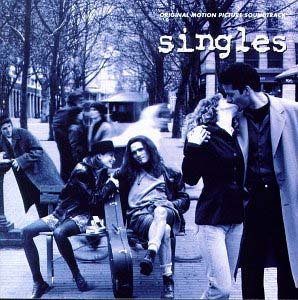I’ve been kickin around some of The Strokes albums lately and after repeated listenings, here are the ten songs I’ve found to be their greatest (so far).
12:51 (from Room on Fire)
“The world is shutting out… for us.”
The upbeat melody and carefree feel make this one of the Strokes’ most addicting songs. And its tragically short running time just makes you want to play it again and again. 12:51 is pure pop ambrosia with a guitar effect that is sonic ecstasy. It reminds me of the way I felt listening to The Smashing Pumpkins’ 1979 in high school: cool, relaxed, free of responsibility and immune from consequences.
Bonus points for effective use of handclaps and Tron-inspired video.
What Ever Happened? (from Room on Fire)
“I come together in the middle of the night.”
This first song from the band’s sophomore release can either be read as a reaction to a bad break up or the casting off of expectations and presumptions (or possibly both). The song lacks a traditional verse-chorus-verse structure, instead feeling like a dramatic bell curve bookended by the same plea. It opens with Jules almost begging to be left alone before breaking into a sensational mind-grabbing riff that leads straight to defiant crux before retreating back to where it started.
By the time its all done, you’ve found another song to play on repeat.
Barely Legal (from Is This It)
“You ain’t ever had nothing I wanted
But I want it all”
Musically and lyrically unadorned and straightforward, Barely Legal is the compellingest song from a compelling album. Composed of simple sardonic and candid one-liners, this song is a musical tirade, bitter and catchy. It’s one for the misanthrope in all of us.
Bonus points for effective use of guitar harmonics.
You Only Live Once (from First Impressions of Earth)
“Sit me down
Shut me up
I’ll calm down
And I’ll get along with you”
When Jules belts those lines, with a wailing guitar counterpoint, its a powerful moment. You Only Live Once launches the band’s third album and, from its sound, they are clearly growing up. Musically and emotionally complex, the song hits with an existential cynicism based on the notion that everything and everyone that has ever existed will eventually be gone. But even that depressing notion can’t stop the rock, so you might as well enjoy it, because you only live once.
Reptilia (from Room on Fire)
“The room is on fire as she’s fixing her hair”
This song takes feeling of bitterness, anger and servility to a whole new level. Then there’s a guitar breakdown. Then it repeats.
The Modern Age (from Is This It)
“Work hard and say it’s easy
Do it just to please me”
The song that started it all. All the dogged hype that is. Much of the negativity that exists toward the Strokes is really more a reaction to the ridiculous behavior of the musical press at the time leading up to the release of Is This It. Hell, even I avoided the band for years because of it. But as evidence that the attention was not all undeserved obsequiousness, this song one day got stuck in my head and the next thing I know, I’ve got it on my iPod, singing along with the windows down.
Someday (from Is This It)
“When we was young, man did we have fun
Always, always”
Someday is a perfect pick-me-up. If you’re feeling somewhat down, a little under the weather, or maybe just stuck in traffic, this song is guaranteed to improve your disposition, if only for about three minutes. The video makes being in a band look like so much fun that I want dust off my guitar and start my own again.
Razorblade (from First Impressions of Earth)
“Oh no, my feelings are more important than yours.”
Being one of the more traditional songs in the group’s repertoire doesn’t stop Razorblade from being any less catchy. Its conventionality probably contributes to its catchiness. The border-line beeping guitar effect is a new effect for the band and its emphasis in the mix really serves to pull you in.
Juicebox (from First Impressions of Earth)
“Why won’t you come over here
We’ve got a city to love”
The Strokes learn to grind on this first single from First Impressions of the Earth. Powered by a throbbing, revolving bassline and quick-tapping, tension-building ride on the cymbal, the song feels like a high-speed ride in a sports car changing gears as it whips through sharp turns and shoots down straightaways.
Juicebox rivals Reptilia as the band’s hardest rocking song (and perhaps their most overtly incensed).
The video features David Cross as a jerkass radio announcer who introduces the band as “Stroke.”
Last Night (from Is This It)
“In spaceships they won’t understand
And me I ain’t ever gonna understand”
A feel-good song with ironically downtrodden lyrics. Sure, it’s based largely on a (admittedly) lifted riff from Tom Petty’s American Girl, but it has its own kind of nonchalant independence. Though the song might be concerned with a disaffected relationship, the energy is such that it’s impossible not to tap your toes along with.
*Bonus Song: because ten just aren’t enough*
Red Light (from First Impressions of Earth)
“An entire generation that has nothing to say”
First Impressions’ closer is a syncopated head-bobbing melody that marches along merrily until an unexpected end that leaves your ears demanding more. The almost videogame-esque guitar treatment is a real treat here, yet the overwhelming sense of the song is trademark nihilism. The worldview here really is bleak, but as with most Strokes’ songs, you can’t help but feel a little cheerful as the invectives spew.
Then without a hint of coda, Red Light stops, leaving these words lingering: “Oh, the sky is not the limit and you’re never gonna guess what is…”

 short version
short version full version
full version

